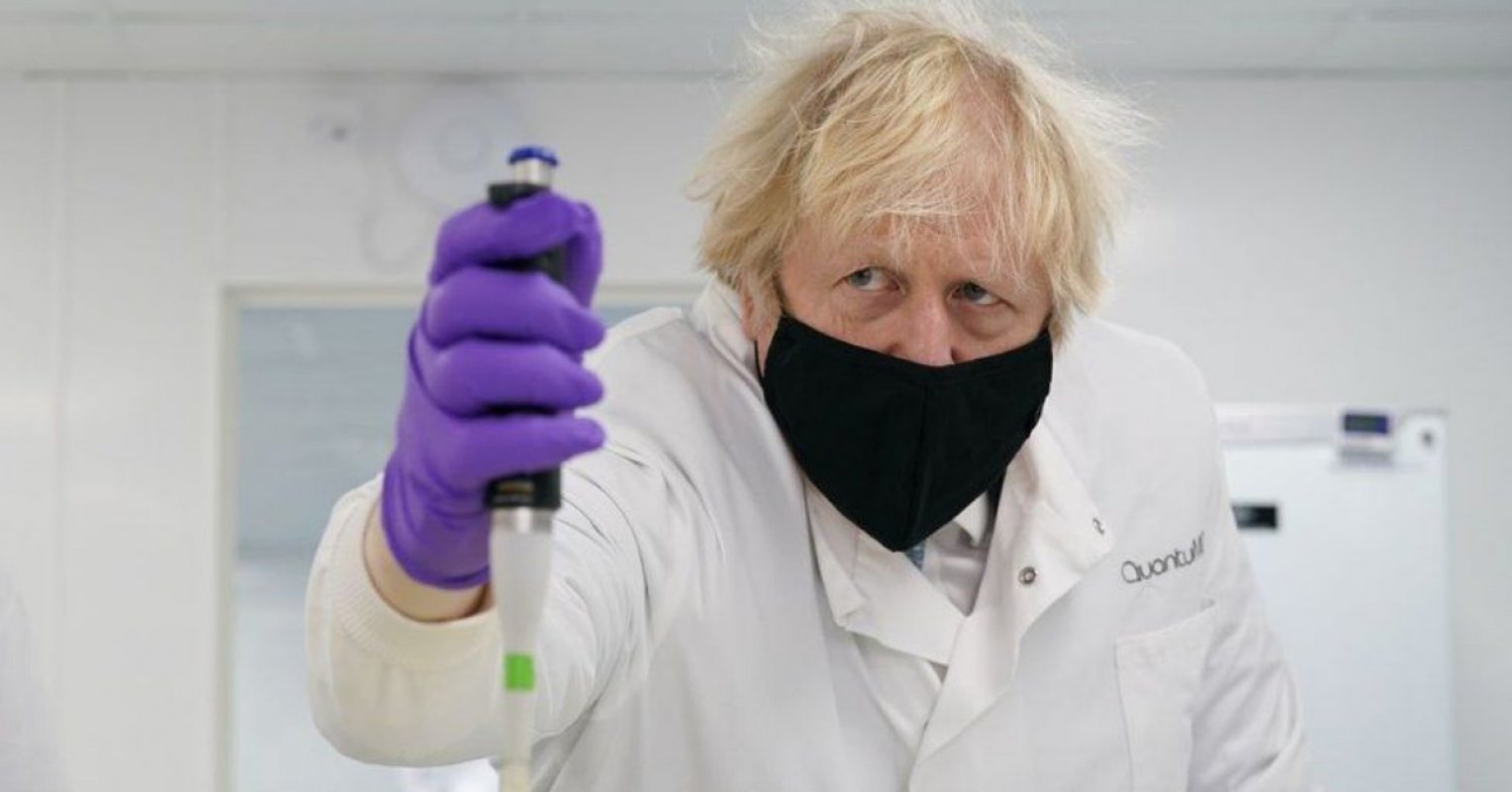英国首相Boris Johnson 最近宣布增加研究预算,制定成为超级科技大国的计划。具体来说,Boris Johnson 成立一个新的国家科学技术委员会 (National Science and Technology Council),此计划将由Boris Johnson 本人直接领导。与此同时,目前担任政府首席科学顾问的Sir Patrick Vallance 将兼任国家技术顾问 (National Technology Adviser),主要负责领导新设立的科技战略办公室 (Office for Science and Technology Strategy)。
另外,金额方面,英国政府将在2021-2022年度为科技研发投入149亿英镑,此支出将创下英国40年来的最高纪录。政府目标是到2025年将研究支出从每年近150亿英镑增加到220亿英镑,旨在利用科学技术来应对社会挑战、气候变化、提高全英科研水平、并促进世界繁荣。除此以外,该计划旨在为脱欧后的英国寻求更大的战略收益,以英国新冠疫苗项目的成功为基础,并拓展更多可以从政府资助中受益的科技研发领域。除了新冠疫苗和治疗之外,英国还希望利用其研究能力,确保从绿色技术转型中获得经济收益,并帮助更多学术成果转化为有利于公众的产品和服务,如帮助医生攻克抗癌技术,帮助企业实现碳中和目标等。
Boris Johnson 提到要发展加强及巩固英国作为全球超级科技大国的地位 — 只有以长期投资为后盾的适当计划才能做到这一点。
PM's research plan to make UK 'science superpower'
The prime minister has set out plans to cement the UK's place as a "science superpower".
Boris Johnson announced how increases in the research budget would be spent.
And Sir Patrick Vallance, the chief scientific adviser, will lead a new Office for Science and Technology Strategy.
An expert on research policy said the move risked taking decision-making out of scientists' hands; Labour said government cuts had damaged research.
The prime minister is said to want to build on the success of the UK's coronavirus vaccine programme and apply it to other areas. These include developing technology to reach net zero carbon emissions and curing cancer rather than simply treating it.
"There can't have been a time in modern memory where every family has owed so much to British scientists (in developing a vaccine)," Mr Johnson said during a visit to a laboratory in Hertfordshire on Monday.
Calling science ''the great liberator'', he added: "I've long believed that we can invest more in science as a country. And we want to use that public investment to trigger waves of private investment."
This government plans to put its money where its mouth is as it talks about plans to reinforce the UK's position as a global science leader.
It aims to increase research spending from nearly £15bn a year to £22bn by 2025.
The stated aim is to use the extra money to tackle societal challenges, such as the impact of climate change, level up across the country and boost prosperity around the world.
As ever though, with greater budgets, comes greater ministerial supervision - in the form of a new committee chaired by the prime minister.
On the one hand, it puts science at the heart of government, but on the other there's concern that there will be more political control on research budgets that could mean money being diverted toward pet projects - rather than spent on what is independently judged by experts to be the best science - as is currently the case.
The stated aim of the new Office for Science and Technology Strategy will be to push forward the government's research priorities. It will also identify resources needed to secure the UK's science capability.
Sir Patrick will take up the position of the new national technology adviser, alongside his other roles. These will include chairing a new National Science and Technology Council to help harness research for the "public good".
He said the changes would put science and technology "right at the heart of policy making" and said he looked forward to helping identify "cutting-edge research and technologies".
But James Wilsdon, who is digital science professor of research policy at Sheffield University, said the reorganisation carried risks: "Ministers and civil servants might have a bigger say over direction and priorities, at the expense of researchers themselves, who are typically better-placed to know where opportunities lie.
"It also raises questions about how much of the extra investment that the government has promised by 2025 will be channelled towards Whitehall projects, and how much will go through (the science funding body) UK Research and Innovation and into the mainstream of university research funding."
Chi Onwurah MP, Labour's Shadow Science Minister, said that research cuts this year had damaged UK science.
"Ministers have cut the budget for science this year leaving researchers and programmes in the lurch, and medical research charities have been left to fend for themselves during the pandemic," she explained.
"More government structures cannot disguise the fact the government has no long-term plan for UK science and is letting our country's researchers down."
"Boris Johnson blowing his own trumpet won't protect the UK's status as a science superpower - only a proper plan backed with long-term investment can do that."
Retrieved from: https://www.bbc.com/news/science-environment-57548531 (21 Jun 2021)
以上资料仅供参考。世纪21奇丰国际没有就该等资料的准确性或完整性,或在任何特定情况下使用的合适性作出任何明示或隐含的保证,亦无须对与该等资料或本网站有关的任何原故而引致的任何损失或损害负上责任。如有需要,请向相关部门或机构。

